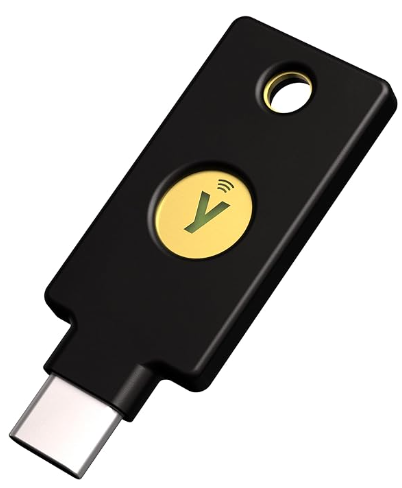Welcome, dear reader, to the wondrous world of cybersecurity! Today, we’re going to unravel the mysteries of the CIA Triad. No, it’s not a secret government agency, but rather a foundational model in cybersecurity that stands for Confidentiality, Integrity, and Availability. This triad is like the three musketeers of digital defence, always ready to protect your precious data from the evil forces of cyber threats. So, grab your popcorn and let’s dive in!
Importance of Understanding the CIA Triad
Why should you care about the CIA Triad? Well, imagine leaving your house unlocked with all your valuables on display – that’s what ignoring these principles would be like in the digital world. Whether you’re a multinational corporation or just someone trying to keep their dog videos safe, understanding the CIA Triad is crucial for protecting sensitive information from prying eyes, tampering hands, and disruptive disasters.

Secure your digital fortress today!
What is Confidentiality?
Confidentiality is the art of keeping secrets – think of it as the cloak of invisibility for your data. It ensures that information is accessible only to those authorized to view it, keeping the nosy neighbours and cyber creeps at bay.
How Confidentiality is Implemented
- Encryption: Encryption is like putting your data in a safe with a combination lock. Only those with the right key (or password) can access it. For example, HTTPS (HyperText Transfer Protocol Secure) is like sending your web data through a secure, encrypted tunnel, shielding it from cyber eavesdroppers.
- Access Controls: Imagine a bouncer at a club who checks IDs – that’s access control for you. User authentication and authorization ensure that only the right people get in. Access Control Lists (ACLs) are modern-day bouncers for your data, allowing or denying entry based on the user’s credentials.
- Data Masking: Data masking is like putting a masquerade mask on your data. Sensitive information, like credit card numbers, gets hidden or obfuscated. This way, even if someone gets unauthorized access, they only see masked data, like **** **** **** 1234.
Real-World Examples
- Case Study: Remember the infamous Yahoo data breach? Millions of accounts were compromised due to poor confidentiality practices.
- Successful Implementation: Secure online banking is a shining example of confidentiality. Banks use encryption and access controls to protect your financial data from cyber thieves.
What is Integrity?
Integrity is all about keeping your data honest and unaltered. It ensures that the information remains accurate and consistent, like a trustworthy accountant who never fudges the numbers.
How Integrity is Implemented
- Checksums and Hash Functions: Think of checksums and hash functions as the bouncers for data integrity. They verify that your data hasn’t been tampered with. Popular examples include MD5 and SHA-256, they uniquely create a fixed-size string of characters that represents the original data, like a digital fingerprint for data files. MD5 is now considered vulnerable to attacks, but SHA-256 generates a more secure, stronger protection against tampering, making it preferred for secure applications.
- Digital Signatures: Digital signatures are relied upon in the digital world, it is the modern-day wax seal. They authenticate the source and ensure that the data hasn’t been altered. E-signatures on legal documents are a common example, providing a secure way to sign contracts online.
- Version Control Systems: Version control systems are like meticulous librarians, tracking every change made to documents, ensuring that the integrity of the document is maintained.
Real-World Examples
- Case Study: The Sony Pictures hack in 2014 was a major cyberattack where a group calling itself the “Guardians of Peace” breached Sony’s computer systems. The attackers stole and leaked vast amounts of sensitive data, including unreleased films, employee information, executive emails, and financial records. The hack caused significant embarrassment, financial losses, and operational disruptions for Sony. It was allegedly in response to the planned release of the film “The Interview,” which depicted a fictional assassination of North Korean leader Kim Jong-un. The incident highlighted the severe impact of cybersecurity breaches and the importance of robust security measures to protect sensitive data.
- Successful Implementation: Blockchain technology in cryptocurrency ensures data integrity. Each transaction is verified and added to an immutable ledger, making tampering virtually impossible.
What is Availability?
Availability ensures that your data is accessible when you need it, like having a 24/7 diner that never closes. It guarantees that information and systems are up and running, ready to serve you at any moment.
How Availability is Implemented
- Redundancy and Failover Systems: These are like having multiple backup singers in a concert. If one fails, the show goes on. Redundancy and failover systems ensure continuous operation by providing backup components and systems. If the primary system fails, the redundant setup takes over seamlessly, preventing downtime. This approach enhances reliability and availability, crucial for critical applications like cloud services and financial systems, ensuring they remain operational under any circumstances.
- Regular Backups: Regular backups are like making copies of your important documents and storing them in a safe place. Through incremental backups that save only the data that has changed since the last backup, minimizing storage space and speeding up the process. Or through full backups, which in contrast, copy all data, providing a complete snapshot. Combining both ensures efficient use of resources while maintaining comprehensive data recovery options to help in ensuring your data can be restored quickly.
- DDoS Protection: DDoS protection is like having a security team to prevent rowdy crowds from overwhelming your venue. Content Delivery Networks (CDNs) distribute website content across multiple servers globally, reducing latency and enhancing load times. By caching content closer to users, CDNs ensure faster, more reliable access, and provide resilience against high traffic and DDoS attacks, as services keep your website accessible even during the attack.
Real-World Examples
- Case Study: The 2016 Dyn attack was a massive distributed denial-of-service (DDoS) attack targeting Dyn, a major DNS provider, on October 21, 2016. The attack was orchestrated using the Mirai botnet, which hijacked numerous Internet of Things (IoT) devices like cameras and routers. The resulting traffic overwhelmed Dyn’s infrastructure, causing widespread disruptions. Major websites and services, including Twitter, Netflix, Reddit, and PayPal, experienced significant outages and slowdowns. This incident highlighted vulnerabilities in IoT devices and underscored the importance of robust DDoS mitigation strategies to protect internet infrastructure.
- Successful Implementation: High availability in online video-on-demand services ensures you can binge-watch your favourite shows without interruptions.
Integrating the CIA Triad
Balancing Confidentiality, Integrity, and Availability
Balancing the CIA Triad is like juggling three balls – it requires skill and practice. Overemphasizing one aspect can compromise the others. For example, ultra-tight security (confidentiality) might slow down access (availability), while too much focus on availability might leave your data exposed.
Best Practices
- Regular Security Audits: Think of these as health check-ups for your systems, identifying vulnerabilities before they become problems.
- Employee Training and Awareness Programs: Educate your staff about cybersecurity practices. After all, a chain is only as strong as its weakest link.
- Implementing a Layered Security Approach: Like an onion, layers of security measures ensure that even if one layer is breached, others stand strong.
Conclusion
We’ve explored the CIA Triad: Confidentiality keeps secrets safe; Integrity ensures data remains accurate, and Availability guarantees access when needed. Together, they form the backbone of effective cybersecurity.
Applying the principles of the CIA Triad is like wearing a suit of armour in the digital battlefield. Whether you’re protecting a vast corporate network or your personal files, these principles are your best defence against cyber threats. Stay informed, stay vigilant, and may your data always be secure.
Ready for More?
Cybersecurity is an ever-evolving field, and there’s always more to learn! Stay tuned for upcoming articles to help keep your digital life safe and sound. Don’t miss out on our next post, subscribe now and join our community of cyber-savvy readers!
Remember: in the world of cybersecurity, knowledge is your best defence. See you in the next article!






Hello. Yes the CIA triad. I remember this. That is what cyber security is all about. Just for example the availability. If your business has to close due to cyber attacks you will miss out on millions of dollars. Potentially. And that’s just one of the three areas. Not to mention all the trust that you lose with the public.
Hello Jake!
Absolutely, the CIA triad (Confidentiality, Integrity, and Availability) is fundamental to cybersecurity. Your point about availability is spot on. Downtime from cyber attacks can indeed cost businesses millions, as you mentioned but not only in lost revenue but also in recovery efforts and potential fines. Plus, the long-lasting effects on a company’s reputation, customer loyalty, also damage to public trust can be even more costly and harder to repair. That’s why it’s crucial to have robust cybersecurity measures in place to protect all three areas of the triad and ensure business continuity.
Thanks for highlighting this important aspect!🚀🔒
Khalil